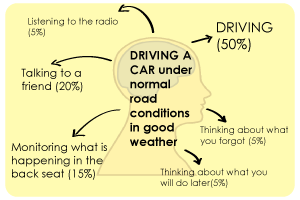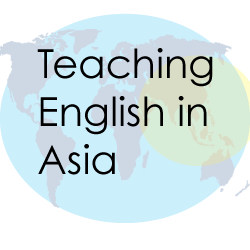 Cognitive Capacity and Cognitive Load
Cognitive Capacity and Cognitive Load
 Holding students’ attention is a challenge for all teachers; they need to be able to gauge student interest, as well as evaluate how challenging the input is. Teachers must also be aware of how the intake of information can affect students and just how much information students can take in at any one time. When students become ‘overloaded’ with information, even the most carefully planned and useful activities can lose their effectiveness; in addition, students may become more easily frustrated. Understanding what happens to students in this ‘loaded state’ and what can cause this state is useful for teachers, both in their planning and in dealing with it when it happens in class. Holding students’ attention is a challenge for all teachers; they need to be able to gauge student interest, as well as evaluate how challenging the input is. Teachers must also be aware of how the intake of information can affect students and just how much information students can take in at any one time. When students become ‘overloaded’ with information, even the most carefully planned and useful activities can lose their effectiveness; in addition, students may become more easily frustrated. Understanding what happens to students in this ‘loaded state’ and what can cause this state is useful for teachers, both in their planning and in dealing with it when it happens in class. |
|
What is cognitive capacity and how is it affected?

Cognitive capacity is the total amount of information the brain is capable of retaining at any particular moment. This amount is finite, so we can say our total capacity is only ever 100%. How much of one’s cognitive capacity is being used towards a particular task at any given time is called the cognitive load. Doing activities that are habitual does not create a heavy cognitive load, so you can do several of these tasks at once.
 An example: For most people, driving a car while talking to a passenger and listening to music on the radio doesn’t create a heavy cognitive load. However, when an activity requires more of our attention, it makes the cognitive load much heavier therefore taking up more of our attention space. So when driving a car in the snow, which requires much more attention, all of a sudden the driver can’t carry on a conversation or listen to music because all of their cognitive capacity is being taken up by the task of maneuvering the car in the snow.
An example: For most people, driving a car while talking to a passenger and listening to music on the radio doesn’t create a heavy cognitive load. However, when an activity requires more of our attention, it makes the cognitive load much heavier therefore taking up more of our attention space. So when driving a car in the snow, which requires much more attention, all of a sudden the driver can’t carry on a conversation or listen to music because all of their cognitive capacity is being taken up by the task of maneuvering the car in the snow.
 |
Watch the PowerPoint movie to find out more about Cognitive Capacity. (time 3:08) |
What can affect cognitive load?
It is important to consider students' cognitive load and cognitive capacity when planning. Teachers need to know how to focus students' attention on the task at hand without overloading them with information. In North American society junior high lessons must begin with focusing their attention - whether through a game, song or SL video clip from Discovery Education. Without their attention, planning for cognitive capacity, load, structure or support just does not matter.
| Things that increase the cognitive load | -increased stress and anxiety |
Things that decrease the cognitive load |
-automaticity |
What happens when a student has reached maximum cognitive capacity?
 When a learner has reached his or her cognitive capacity at any given time, he or she is saturated. When saturated, the brain cannot easily process any more information. Time is required for saturation to decrease; a teacher must be aware of this state, recognize it in students, and be able to occupy them with less stressful activities when they reach this state in order to allow for desaturation.
When a learner has reached his or her cognitive capacity at any given time, he or she is saturated. When saturated, the brain cannot easily process any more information. Time is required for saturation to decrease; a teacher must be aware of this state, recognize it in students, and be able to occupy them with less stressful activities when they reach this state in order to allow for desaturation.
Recognizing when your students have reached their saturation point is critical. Sometimes you can push them beyond their limits just a bit, other times it becomes a disaster and you lose your audience´s attention completely. Recognizing these things is critical when you are about to introduce a new concept. Sometimes it is best to simply change the activity.
back to top










